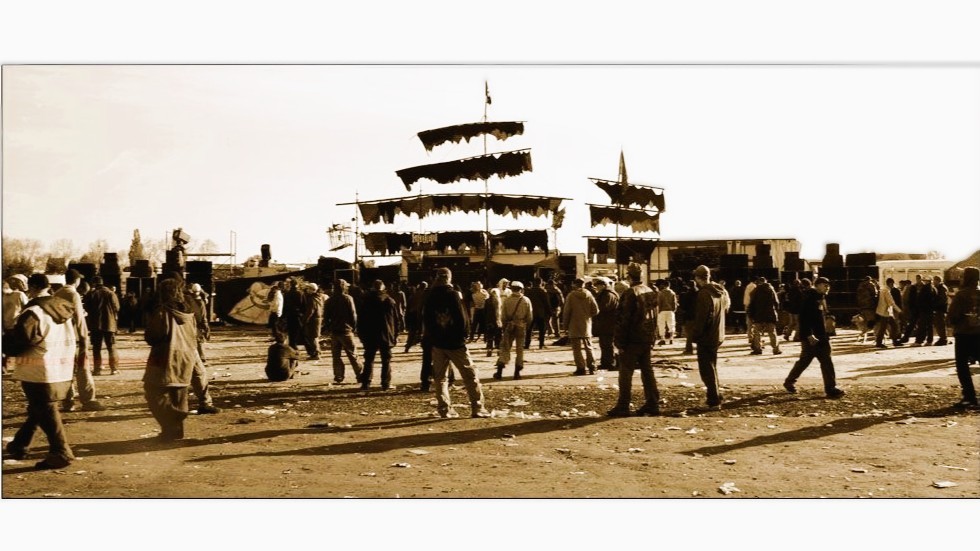The Untold Story of Teknival: From Protest to Global Movement

🛑 It Didn’t Start as a Party
In the early 1990s, Europe was undergoing a political and cultural transformation. New laws threatened youth subcultures and underground gatherings — none more directly than the UK’s Criminal Justice and Public Order Act of 1994, which outlawed unlicensed music events featuring “repetitive beats.”
But the movement was already in motion.
In 1993, a defiant collective of artists, activists, travelers, and ravers converged in Avignon, France, for what would later be called the first Teknival. What started as a protest against restrictive laws evolved into something much larger: a mobile festival of resistance, blending free expression, counterculture, and cutting-edge electronic music.
✊ It was anti-authoritarian. It was underground. It was raw.
🔊 Spiral Tribe: The Spark that Lit the Fire
No Teknival story can be told without Spiral Tribe — a UK sound system crew formed in 1990. Known for their anarchist ethos and nomadic lifestyle, they were instrumental in spreading the free party scene across Europe.
After the infamous Castlemorton Common Festival in the UK (May 1992), Spiral Tribe faced harsh legal consequences. Many of the members relocated to mainland Europe, bringing with them a new model: decentralized, collaborative raves held on squatted land, in forests, abandoned airstrips, and anywhere the signal could reach.
🌀 Spiral Tribe didn’t just throw parties.
🎧 They built communities — powered by sound.
🌍 What Is a Teknival?
A Teknival is a large-scale, free techno festival, typically organized by multiple sound systems, with no official sponsors, tickets, or commercial agenda. They operate on DIY principles, sometimes lasting for days or even weeks.
Unlike traditional music festivals:
There are no gates, no VIP passes.
Music ranges from acid, hardcore, tekno, dub, jungle, and beyond.
Attendees include ravers, punks, squatters, artists, nomads, and seekers.
Most Famous Teknival Events:
🇫🇷 French Teknival — Ongoing since 1993, sometimes gathering 30,000+ people
🇮🇹 Italian Teknival
🇨🇿 Czech Tek — Known for hosting massive crowds
🇪🇸 Spanish Teknival
🌍 And now — Teknivals in Japan, Morocco, Brazil, and beyond
🚨 Legal Clashes and Police Pressure
From its inception, Teknival has been shadowed by state opposition. Police have frequently shut down events, seized equipment, or created roadblocks. Yet, the movement persists.
In 2005, the French government attempted to stop Teknival in the Marigny-Brizay region, citing “security concerns.” Thousands still showed up. Police blocked roads, but ravers walked kilometers through fields to reach the sound systems.
“You can’t stop the beat.” — graffiti near a 2008 Czech Tek site
🔥 Teknival in 2025 — Still Alive, Still Free
Despite crackdowns, the Teknival movement thrives. In 2024, the French Teknival saw tens of thousands reunite to celebrate 30+ years of resistance and music. New generations of ravers now stand shoulder to shoulder with the originals — creating, dancing, and keeping the flame alive.
🧠 Why Teknival Still Matters
Teknival is more than music.
It’s a statement:
Against commercialization of culture
Against the privatization of public space
For radical freedom, creative rebellion, and collective joy
It reminds us that not everything can be bought.
That some things are worth building — even if they get torn down.
That community is built, not sold.
💬 Share Your Memory
Have you ever been to a Teknival? Was it muddy, messy, magical?
Drop your story in the comments below, or tag us on Facebook
